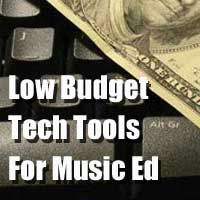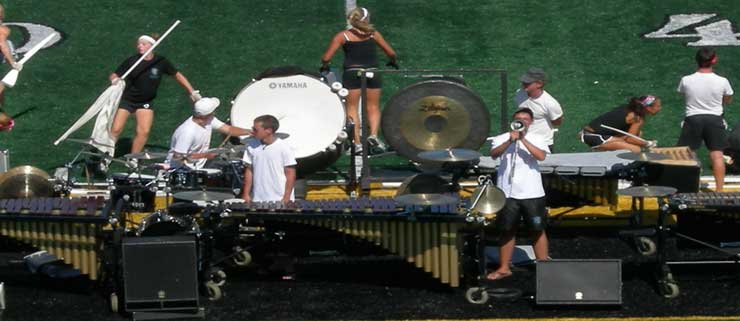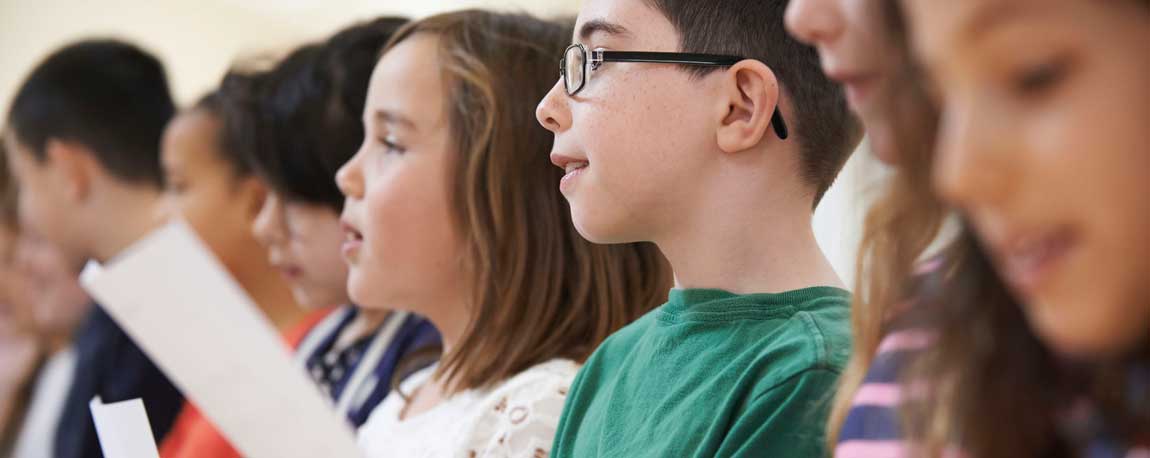 Paul Johnston is one of the busiest jazz pianists in the Midwest. Not only is he a faculty member at Eastern Illinois University and the Interlochen Arts Camp, but he is in high demand as both a classical and jazz pianist throughout the Heartland. After having studied with some of the best pedagogue's in the country, including jazz guru David Baker, Paul is now enjoying his role as a music educator at both the high-school and college level.
Paul Johnston is one of the busiest jazz pianists in the Midwest. Not only is he a faculty member at Eastern Illinois University and the Interlochen Arts Camp, but he is in high demand as both a classical and jazz pianist throughout the Heartland. After having studied with some of the best pedagogue's in the country, including jazz guru David Baker, Paul is now enjoying his role as a music educator at both the high-school and college level.
Â
Paul took time off from his busy schedule as Professor of jazz piano at Eastern Illinois University and jazz piano instructor at the Interlochen Arts Camp to discuss his background and views on jazz piano education.
Â
Â
MW: How did you get your start as a piano teacher?
PJ: I started teaching beginning piano students at the local music store back in Pittsburg when I was in high school. I had students of all ages there. Many were elementary-aged kids starting out. One was a fine high school classical pianist who wanted to know more about jazz. Another was a woman in her 70’s whose grandson was taking karate lessons across the street at the same time. I still remember each and every one of them!
MW: Did any of your teachers have an influence on your private teaching approach?
PJ: My teachers have had a significant influence on my approach to music and my approach to teaching. My early teachers in Pittsburgh, Tim Baker and Dave Budway, gave me a very solid musical foundation. My work with college students is greatly influenced by my own college teachers. I studied with Ed Paolantonio at the University of North Carolina. He had worked with Lennie Tristano and taught using Tristano’s method; I have incorporated much of this into my teaching. My time with David Baker at Indiana University has also greatly influenced my approach to teaching improvisation.
MW: As someone who has taught high school and university level students, what similarities and differences have you found between the two?
PJ: Students are all unique. They have had different experiences and think about music in different ways. In general, I enjoy working with high school students because of their contagious energy and their willingness to try new ideas. I also enjoy working with college students because they have been playing a bit longer and have internalized more ideas and concepts.
MW: In your opinion how has technology, especially the internet, changed the landscape of music education in recent years and where do you see it headed in the future?
PJ: In 2000, I remember a friend telling me about his visit to Japan. He described this device that folks wore around their necks that could hold an entire record collection. Today, iPods and mp3 players are ubiquitous. I also remember being introduced to YouTube several years ago. These technological breakthroughs have given everyone immediate access to all kinds of music. I could not have anticipated these developments, and I am sure the future holds many exciting things as well.
MW: You are such an experienced and accomplished performer as well as an educator. How has your teaching experience influenced your performing and vice-versa?
PJ: My performing and teaching certainly go hand-in-hand. I find that performing with different people is refreshing. It gives me ideas for new repertoire and concepts to practice. My work with students is also invigorating. Teaching music has made me think about concepts in different ways. I think this has been helpful in my own development as a performer.
MW: What advice do you have for people who are just starting to teach piano?
PJ: I encourage folks to set goals with their students and have fun. If students are having a good time and enjoying the piano, they will practice a lot. I often say that they call it playing music because it is supposed to be play, not work.
MW: What advice do you have for students when they are looking for a private piano teacher?
PJ: When looking for a piano teacher, I encourage folks to find someone who has students who are doing what they want to do. If a teacher’s students are accompanying choirs, playing in the jazz band, or winning concerto competitions, they likely can teach you to do these things, too.
MW: Thank for talking to us today.
PJ: Anytime.







 Scroll down to view the comparison chart of over a dozen different portable digital audio recorders.
Scroll down to view the comparison chart of over a dozen different portable digital audio recorders.